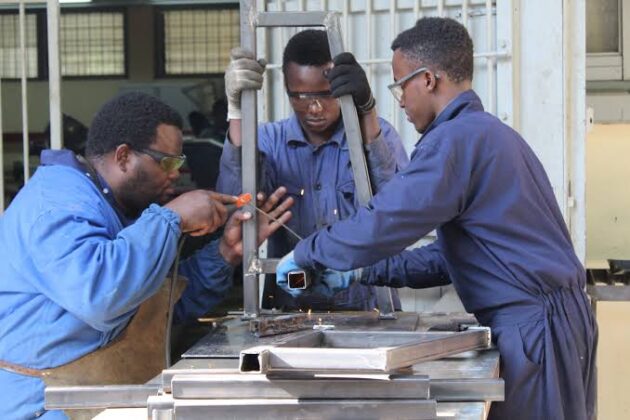
Govt to triple TVET enrollment as Kenya marks Centenary celebrations » Capital News
NAIROBI, Kenya, May 21 – The government plans to triple enrollment in Technical and Vocational Education Training (TVET) institutions from 350,000 to a million over the next five years, according to new data released yesterday.
This has been revealed amid ongoing celebrations marking 100 years since inception of TVETs in the country and increased emphasis that the technical colleges have potential to transform the economy.
A caravan carrying the TVET at 100 Torch and Flame has been passing through TVET institutions across the country in celebrations set to culminate in a national event at the Kabete National Technical Polytechnic on July 31 2024.
“We want to increase TVET enrollment from the current 350,000 to up to a million youth with keen focus on ensuring the institutions are offering what the labour market needs,” Stanley Maindi, the Kenya National Qualifications Authority (KNQA)director of technical services told journalists
The government has heightened its support for TVETs to offer practical training, banking on this to push the potential of young people to positively contribute to economic growth.
President William Ruto launched the TVET at 100 Torch and Flame on March 25 2024 at the Nyeri National Polytechnic in celebrations to mark the milestone in the technical training sub-sector.
Kabete National Polytechnic has been selected to host the national event which coincides with the institution marking 100 years since its establishment as the Native Industrial Training Depot.
Among activities lined up during the celebrations are skills competitions; exhibitions by TVET Institutions, Industry/Labour Market; Speeches, Paper Presentations as well as launch of the Centenary Building.
The government has moved to boost TVET capacities through retooling of trainers with competency based curriculum training (CBET) where curriculum development is industry driven.
“Aside from boosting the esteem of TVETS, we want to ensure that CBET and Recognition of Prior Learning (RPL) are effectively applied across board to support skills development and employability of the youth,” said Maindi.
The State started assessing tailors, hairdressers, automotive engineers and welders in line with the RPL Policy that seeks to acknowledge persons that have skills and competencies from informal and non-formal settings.
The overall objective of the ongoing celebrations is to reflect on 100 Years of TVET in Kenya and explore concrete approaches to position training institutions to respond to labour market and societal needs for enhanced employability, decent work, entrepreneurship and lifelong learning.
